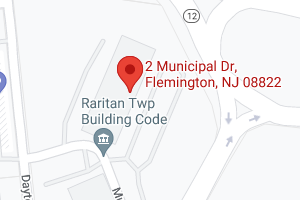The parents of 7-year old Megan Kanka of Hamilton Township did not know that a twice-convicted sex offender was living across the street until that neighbor was charged with the brutal rape and murder of their daughter.
The crime, occurring only months after a similar incident in Monmouth County, prompted passage of state law requiring notification about sex offenders who may pose a risk to the community.
New Jersey's law, commonly known as Megan's Law, requires convicted sex offenders to register with local police. Megan's Law also establishes a three-tier notification process to provide information about offenders to law enforcement agencies and, when appropriate, to the public. The type of notification is based on an evaluation of the risk to the community from a particular offender. Equipped with the descriptions and whereabouts of high risk sex offenders, communities will be able to better protect their children.
Common Questions about Megan's Law
Are all sex offenders required to register with local police?
Sex offenders who have been released from custody since Megan's Law went into effect on October 31, 1994 are required to register with their local police department. In addition, offenders who were on parole or probation on the effective date of the law, as well as offenders who have been found to be repetitive and compulsive offenders by the courts, regardless of the date of sentence, are also required to register. Some registrants must verify their address every 90 days.
What types of offenses require registration?
The offenses include aggravated sexual assault, sexual assault, aggravated criminal sexual contact, endangering the welfare of a child by engaging in sexual conduct, endangering the welfare of a child by participating in child pornography, child luring, and, if the victim was a minor and the offender not a parent, kidnapping, criminal restraint, and false imprisonment.
How does the notification process work?
The New Jersey State Department of Corrections and New Jersey Department of Human Services are responsible for informing county prosecutors about the anticipated release of sex offenders.
Will I always be notified if a convicted sex offender moves into my neighborhood?
Under the law, sex offenders who reside in the community are classified by prosecutors in one of three Tiers based on the degree of risk they pose to the public. Neighbors are only notified of high risk offenders. School and registered community organizations involved in the care of children are notified of moderate and high risk offenders. Law enforcement agencies are notified of the presence of all sex offenders.
What information is provided in a notification?
In all three levels of notification, the information provided includes the name of the offender, description, photograph, address, place of employment or school, if applicable, and a description of the vehicle and license plate number of the offender.
How will I be informed?
You will receive personal notification of the location of all high risk offenders in your neighborhood that you are likely to encounter. A law enforcement official, such as a police officer or investigator from your county prosecutors office, will come to your door and provide you with the pertinent information about offenders in your neighborhood.
What should I do if I receive notification?
Reinforce general precautions about staying away from strangers and ask your children to tell you or their caretakers where they will be at all times. Use the information responsibly. Talk with your children. Tell them to treat the sex offender as a stranger. Tell them where the sex offender lives, what he or she looks like and what to do if they encounter or are approached by that person. If you believe that a crime is being committed by a sex offender, contact your local law enforcement agency immediately as you would do in any case of suspected criminal activity.
Are there any other steps I can take to protect my family?
Yes. There is no law that can ever completely protect us. Adults need to teach children about basic safety precautions. Check with your child's school to determine whether a program is in place to teach children about strangers. Also, check with the school and other locations where your child spends time on a regular basis to determine what safety precautions are in place.
What am I prohibited from doing?
The prosecutor and the courts are responsible for determining who should receive notice about the presence of a particular individual in the community. You should not take it upon yourself to provide any information you receive to others in the community; that is the job of the prosecutor and local law enforcement. Any actions taken against the individual named in the notification, including vandalism of property, verbal or written threats of harm, or physical violence against this person, his or her family or employer, will result in arrest and prosecution. Vigilantism is not only a crime; it is an action that will undermine the efforts of those who have worked hard to enact this law.




